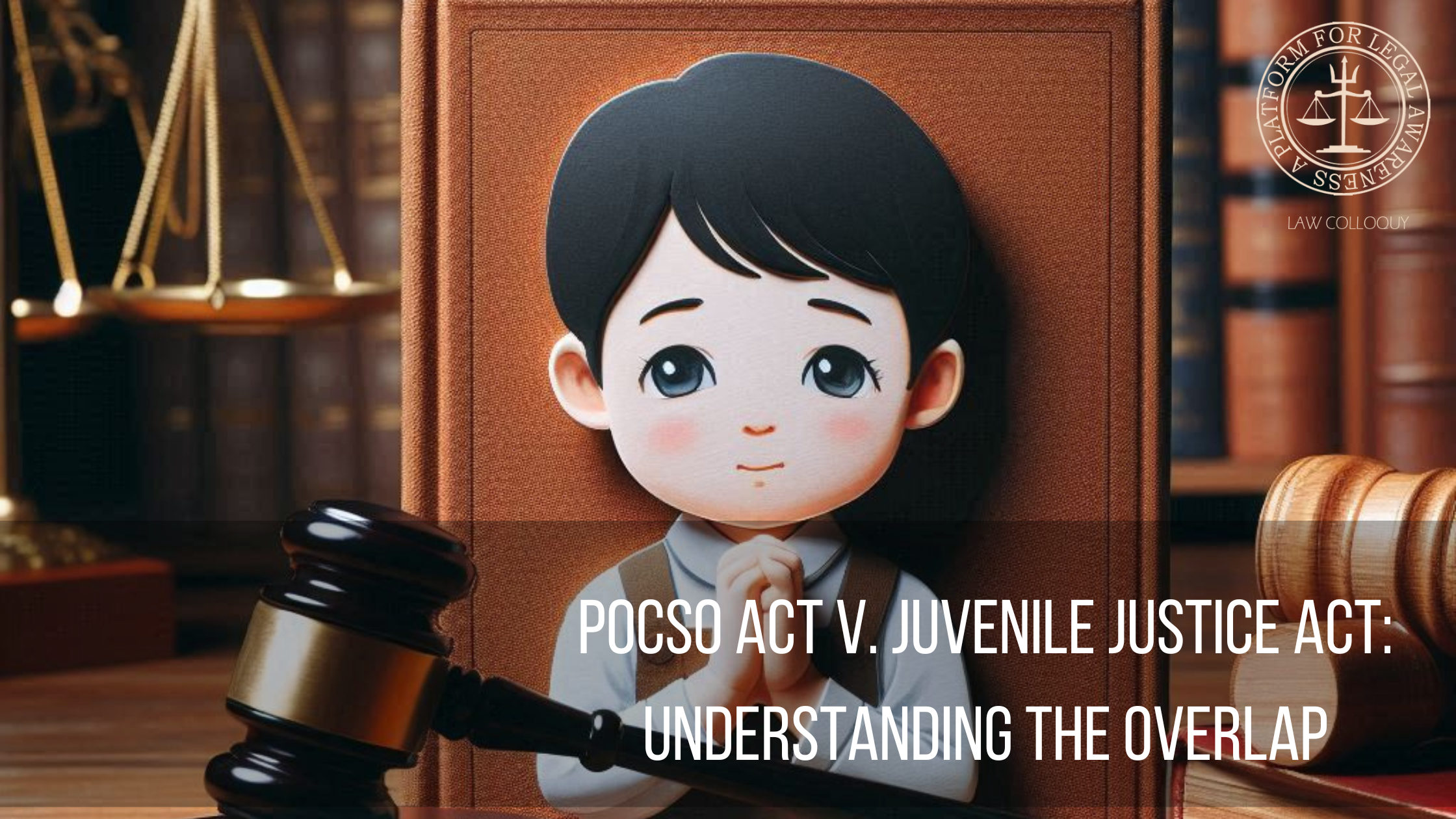POCSO Act vs Juvenile Justice Act: Understanding the Overlap
The Indian legal system provides a comprehensive framework for the protection and welfare of children through two major legislations: the Protection of Children from Sexual Offences Act, 2012 (POCSO Act) and the Juvenile Justice (Care and Protection of Children) Act, 2015 (JJ Act). While both laws aim to safeguard the interests of children, their areas of focus differ. The POCSO Act is designed to address and penalise sexual offences against children, whereas the JJ Act ensures the welfare, rehabilitation, and adjudication of children who are either victims or offenders. However, complex legal challenges emerge when a child is both the alleged offender and the victim, or when sexual acts involve two minors in a consensual relationship. This blog explores the overlapping areas between these laws, the judicial response, and the way forward for a child-sensitive and balanced application of the two statutes.
Rights of The Accused in India
In India, the rights of the accused are provided only in cases where a warrant is issued. An accused has certain rights during any investigation; enquiry or trial of offence with which he is charged till the time the crime is not proven.
Difference between Dishonestly & Fraudulently in the Indian Penal Code, 1860
Dishonestly & Fraudulently are usually confused as synonyms, although they have different meanings and uses in criminal law. The main factor in discriminating them is the level of punishment. Dishonestly is non-cognizable, whereas fraudulently is a cognizable offence.
Difference between Investigation and Inquiry under Criminal Procedure Code 1973
The criminal procedure in India is governed by the CrPC 1973.
Amicus Curiae: The Indian perspective
An amicus curia is a Latin word which means, ‘friend of the court. He/she is a person appointed by the court who is a specialist in any specific area along with the legal knowledge who can assist a court by offering information, expertise, or insight that has a bearing on the issues in the case in the form of a brief. He is not a party to a case and should not be appointed by a party to maintain the transparency and unbiased decision. The Court appoints him and the court itself provides his fees/consultation. The decision on whether to consider an amicus brief lies within the discretion of the court.
Sources of Hindu Law
Hindu Law is a divine law. It is believed that God has preached the law to the common man through Vedas. Different sages and ascetics life have expounded and refined the unique ideas of life clarified in the Vedas.
Structure and functioning of Criminal Courts in India
Administration of criminal justice is carried out through Magistrate Courts and Sessions Courts. The Indian Panel Code, 1860 (IPC), together with other penal laws constitutes India's substantive criminal law.
Significant Amendments in the Criminal Law (2013-18)
Our legal system has provided many provisions to protect women and keep on amending from time to time. Some significant provisions on sexual offences were amended in 2013-18 in criminal law.
Jurisdiction of Supreme Court of India
According to Article 124 of the Indian constitution, there shall be a Supreme Court of India. The constitutional powers and jurisdictions of the Supreme Court have been defined from Article 124-147. The Supreme Court is meant to be the highest court of appeal which takes up appeals against the verdict of High Courts. Supreme Court at the apex of Indian Judiciary to uphold the constitution of India, to protect the rights and liberties of citizens and to uphold the values of rule of law. Hence it is known as the guardian of our Constitution.
Criminal Trial in Indian Law
Criminal law is the body of law that relates to crime. In India Criminal Justice system includes three Acts
Difference between Gang, Racketeering and Crime Syndicate
An organised crime group is a category of transnational, national, or local groupings of highly centralized enterprises run by criminals who attempt to regulate and control the production and distribution of a given commodity or service unlawfully.
Difference between Kidnapping and Abduction
The word “kidnapping” has been derived from the word ‘kid’ meaning child and ‘napping’ to steal. Thus the word literally means “child stealing”. However, under the Indian Penal Code it is not confined to child stealing. It has been given broader implication, i.e., carrying away of a human being against his/her consent, or the person accused removes the person from his/her lawful guardianship.
Differences between “May Presume” “Shall Presume” And “ Conclusive Proof
As per the dictionary, the meaning presumption is ‘an idea that is taken to be true on the basis of probability’ or ‘the act of believing that something is true without having any proof’.

